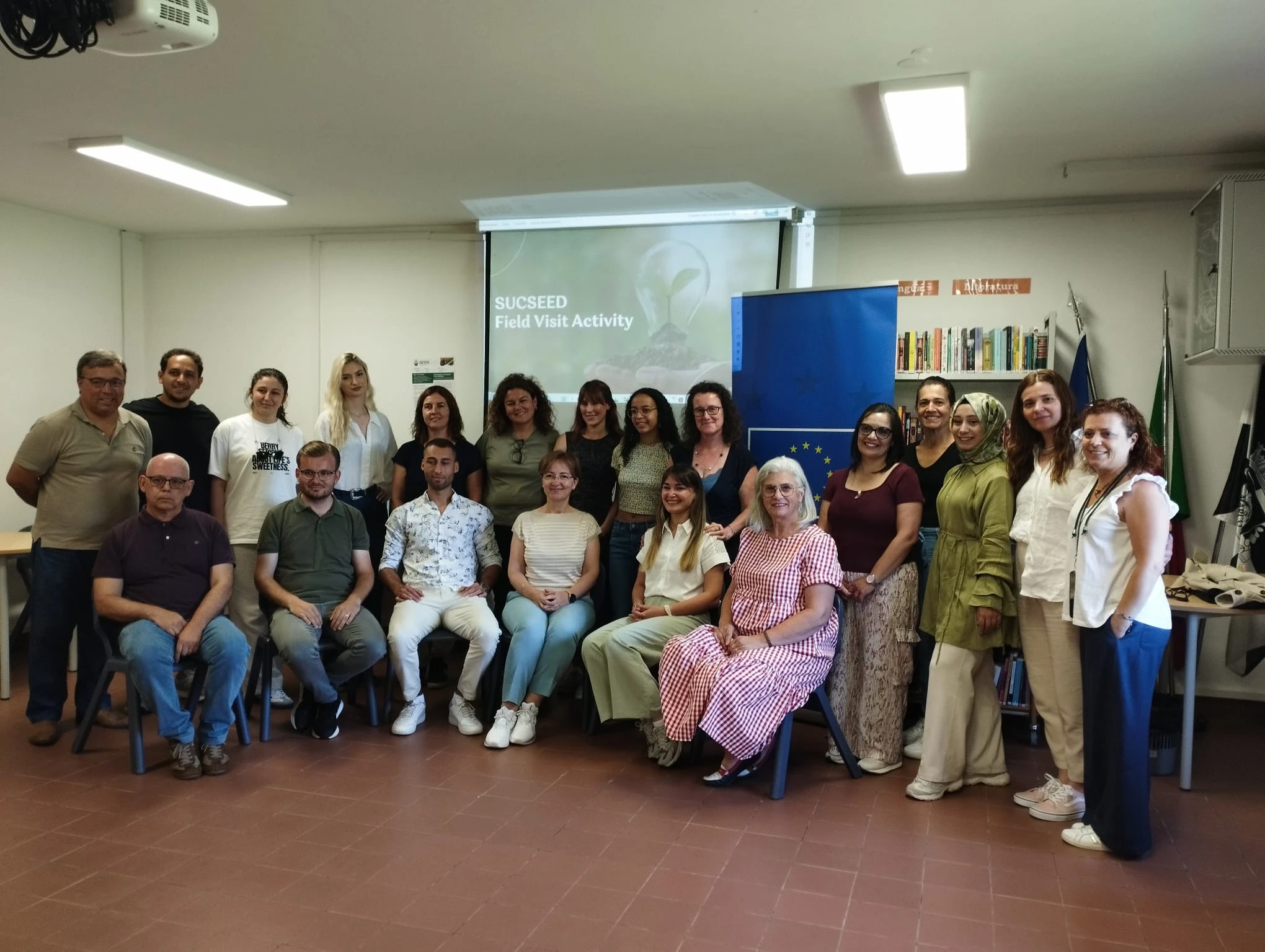
As part of the SUCSEED Project “Developing Knowledge and Professional Skills on New Plant Breeding Tools and Seed Build-Up Techniques for Sustainable Agriculture and Food Security,” the Practical Field Visit (Activity A3) was successfully held in Portugal between 21 and 25 July 2025. Hosted by EPAMAC (Escola Profissional de Agricultura e Desenvolvimento Rural de Marco de Canaveses) and the Universidade de Trás-os-Montes e Alto Douro (UTAD), this intensive training activity aimed to transform the project’s theoretical learning components into a hands-on experience. The Field Visit provided participants with an exceptional opportunity to enhance their technical capacities in seed production, plant breeding, and the use of New Plant Breeding Tools (NPBTs), while fostering collaboration between VET educators, students, and professionals from the agronomy and agricultural education sectors.
The week began with a welcoming session and partner introductions at EPAMAC, where participants were presented with the SUCSEED project’s digital outputs, including the website, social media platforms, networking hub, and digital handbook. A guided tour of EPAMAC’s facilities allowed visitors to explore the school’s agricultural infrastructure and teaching environments. Later, participants engaged in practical workshops such as seeding “cebola garrafal,” learning about certification processes, and exploring other agricultural activities within the equestrian and garden facilities. These sessions enabled direct observation and practice of professional techniques under expert supervision, bridging the gap between theoretical instruction and real-life application.
On the second day, the group visited Marco de Canaveses and later an organic production farm, Quinta Dona Ovelha in Amarante, where participants examined sustainable production systems, organic certification processes, and the environmental aspects of modern farming. This visit emphasized the importance of ecological balance and biodiversity in achieving sustainable food systems. The third day was devoted to an academic collaboration at UTAD, where participants attended a full-day study visit combining theoretical presentations and laboratory demonstrations. Experts from UTAD shared the latest scientific knowledge on seed improvement, DNA isolation, and genetic analysis, providing valuable insights into Portugal’s research advancements in plant science and sustainable agriculture.
The fourth day focused on the topic “New Plant Breeding Techniques and the State of the Art in Turkey and Belgium,” presented by experts from IGEA and SDSN. The sessions addressed the crucial role of NPBTs in combating climate change and ensuring food security, aligning with the objectives of the European Green Deal and Farm to Fork Strategy. In the afternoon, participants visited the Alípio Dias company, where they observed the industrial aspects of seed processing, packaging, and certification, thus reinforcing the connection between vocational education and the agribusiness sector. The day concluded with a post-activity survey, enabling participants to reflect on their experiences and learning outcomes. The final day offered a cultural exploration activity, a “City Hunting” tour in Porto, allowing participants to discover local culture and heritage, further enriching the international and intercultural dimension of the learning experience.
The Field Visit in Portugal achieved all its objectives and went beyond expectations. Participants not only strengthened their technical and digital skills in seed production and plant breeding but also gained a deeper understanding of how innovation and sustainability intersect in agriculture. The activity promoted transnational cooperation, encouraged the exchange of best practices, and built stronger networks between training centers, universities, and industry stakeholders. According to participant feedback, the field experience significantly enhanced both professional competence and environmental awareness, demonstrating the effectiveness of experiential learning in vocational agricultural education.
Overall, the SUCSEED Field Visit in Portugal stands as an inspiring example of how hands-on learning can empower VET learners and educators to drive innovation in sustainable agriculture. Through the combination of scientific expertise, field-based practice, and international collaboration, this activity contributed to shaping a new generation of professionals equipped with the knowledge and skills required to build climate-smart, resilient, and quality-driven seed systems across Europe.